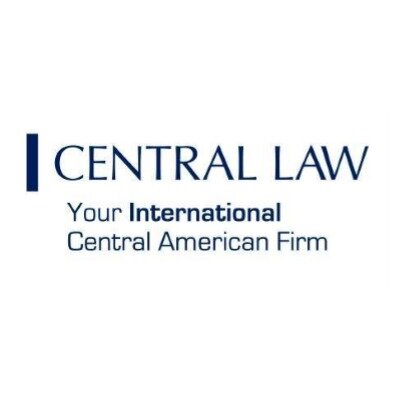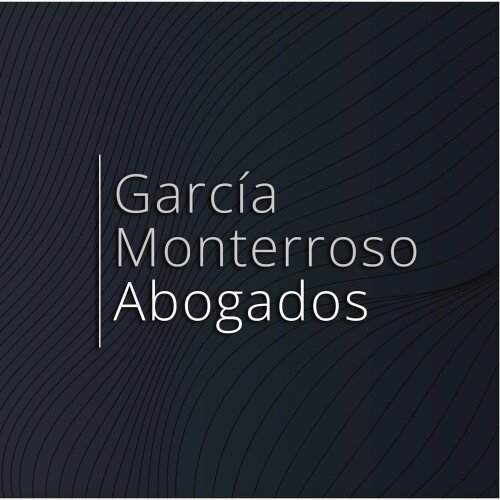Best Art & Cultural Property Law Lawyers in Guatemala
Share your needs with us, get contacted by law firms.
Free. Takes 2 min.
Or refine your search by selecting a city:
List of the best lawyers in Guatemala
About Art & Cultural Property Law in Guatemala
Art & Cultural Property Law in Guatemala is a specialized area of law that involves the protection, preservation, and management of the country's cultural heritage and artistic works. Guatemala, known for its rich Mayan history and diverse cultural expressions, has a strong legal framework aimed at safeguarding its cultural property from illegal trade, theft, and exploitation. The Guatemalan government recognizes the importance of preserving its cultural legacy for future generations, and thus, has implemented laws and regulations to ensure the legal treatment of cultural artifacts, historical sites, and artistic creations.
Why You May Need a Lawyer
There are several situations where individuals or entities might need legal advice in the field of Art & Cultural Property Law in Guatemala:
- Protection of Cultural Artifacts: If you own or manage cultural items, a lawyer can assist you in understanding your rights and responsibilities.
- Dispute Resolution: Legal conflicts concerning ownership, provenance, or the sale of cultural properties often require professional legal intervention.
- Compliance with Export/Import Regulations: A lawyer can provide essential guidance on the legalities involved in importing or exporting cultural goods.
- Restitution Claims: If seeking the return of cultural properties, you may need a lawyer to navigate both local and international restitution procedures.
- Legal Advice for Cultural Institutions: Museums and galleries may need legal assistance to manage their collections and operations within the law.
Local Laws Overview
Guatemala's legal framework for Art & Cultural Property is comprehensive and includes various decrees and laws aimed at the protection and conservation of cultural heritage. Some key aspects include:
- Constitutional Provisions: The Guatemalan Constitution emphasizes the state's duty to protect cultural heritage.
- Law for the Protection of Cultural Heritage (Decree 26-97): This law provides a framework for the classification, protection, and conservation of cultural assets.
- Regulations on Excavations: Strict guidelines are in place for archaeological excavations, requiring official permission and controls.
- Export Bans: The export of cultural property is heavily regulated, and certain items cannot be taken out of the country without specific authorization.
- Penalties for Violations: Illegal activities related to cultural property can lead to heavy fines and imprisonment.
Frequently Asked Questions
What constitutes cultural property under Guatemalan law?
Cultural property includes artifacts, buildings, artworks, and other items of historical, artistic, or archaeological significance.
Can I export an artifact from Guatemala?
Exporting artifacts without proper authorization is illegal and regulated by strict laws to prevent cultural loss.
How are disputes over cultural property ownership resolved?
Disputes are typically settled through negotiation, mediation, or legal proceedings, depending on the parties involved and the specifics of the case.
Are there legal protections for contemporary art?
Yes, contemporary art is protected under intellectual property laws, alongside regulations on cultural heritage.
What is the role of the government in protecting cultural heritage?
The government actively enforces laws to safeguard cultural property, involving various agencies in monitoring and protection efforts.
How can I verify the authenticity of a cultural artifact?
Authentication often requires expert evaluation, which can be facilitated by legal professionals or cultural institutions.
Who oversees cultural property laws in Guatemala?
The Ministry of Culture and Sports is primarily responsible for overseeing and enforcing these laws.
What should I do if I encounter illegally obtained artifacts?
Report immediately to local authorities or the Ministry of Culture and Sports to address the issue legally and appropriately.
Is it possible to legally acquire cultural properties?
Yes, as long as the acquisition complies with national laws and includes proper documentation and provenance.
What are the penalties for illegal activities concerning cultural property?
Penalties vary but can include fines, imprisonment, and confiscation of the illicitly acquired items.
Additional Resources
Several resources and organizations can provide further guidance and help:
- Ministry of Culture and Sports: This government body oversees cultural heritage protection and enforcement.
- Museums and Cultural Institutions: These entities can offer insights and resources regarding cultural preservation.
- Legal and Academic Journals: Publications specialised in cultural property law provide in-depth analysis and updates.
Next Steps
If you require legal assistance in the area of Art & Cultural Property Law in Guatemala, consider the following steps:
- Consult a Legal Expert: Seek an attorney specializing in cultural property law for personalized advice.
- Gather Documentation: Ensure you have all relevant paperwork and documentation related to your cultural property issue.
- Formalize Proceedings: If necessary, engage in formal legal proceedings under the guidance of your lawyer.
- Stay Informed: Keep updated on changes in local laws and global practices regarding cultural property.
Lawzana helps you find the best lawyers and law firms in Guatemala through a curated and pre-screened list of qualified legal professionals. Our platform offers rankings and detailed profiles of attorneys and law firms, allowing you to compare based on practice areas, including Art & Cultural Property Law, experience, and client feedback.
Each profile includes a description of the firm's areas of practice, client reviews, team members and partners, year of establishment, spoken languages, office locations, contact information, social media presence, and any published articles or resources. Most firms on our platform speak English and are experienced in both local and international legal matters.
Get a quote from top-rated law firms in Guatemala — quickly, securely, and without unnecessary hassle.
Disclaimer:
The information provided on this page is for general informational purposes only and does not constitute legal advice. While we strive to ensure the accuracy and relevance of the content, legal information may change over time, and interpretations of the law can vary. You should always consult with a qualified legal professional for advice specific to your situation.
We disclaim all liability for actions taken or not taken based on the content of this page. If you believe any information is incorrect or outdated, please contact us, and we will review and update it where appropriate.
Browse art & cultural property law law firms by city in Guatemala
Refine your search by selecting a city.














